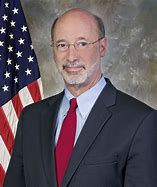Harrisburg, PA – Multiple health care organizations and professionals recently voiced support for the health care reform plan the Wolf Administration announced to help make health care affordable, accessible, equitable, and of value for every Pennsylvanian.
“The support of respected organizations and health care professionals is vital to the success of these important reforms,” Gov. Wolf said. “Thank you to PAFP, Altarum, United States of Care, Center for Advocacy for the Rights & Interests of the Elderly, and the Rehabilitation and Community Providers Association for voicing their support for these health care reforms that represent those they serve.”
Here’s what these organizations had to say:
Pennsylvania Academy of Family Physicians:
“We are pleased with Gov. Wolf’s focus on primary care and health care disparities in our great Commonwealth,” said Tracey Conti, MD, President of the Pennsylvania Academy of Family Physicians (PAFP). “Alongside the American Academy of Family Physicians, we have been touting enhanced spending by payors for primary health care for years. Pennsylvania is behind the national average of payor spending at 4.2%, compared to 5.6% nationally. Furthermore, while we applaud the creation of an Interagency Health Reform Council in order to address the state’s health care costs, we look forward to broader legislation that will implement a ‘health in all policies’ strategy to help ensure health equity for all Pennsylvanians. The PAFP looks forward to working with the governor and legislature on these important topics.”
Altarum’s Healthcare Value Hub:
“The Wolf Administration’s Health Reform Plan is unique in its comprehensive focus on affordability, access, equity and value for all health needs,” said Healthcare Value Hub leadership Lynn Quincy, Amanda Hunt and Sabah Bhatnagar. “It recognizes the inequities of the current healthcare system and, most importantly, proposed evidence-based approaches to address key system problems. For example, interagency data-sharing and coordination is a key component of better delivery of state provided healthcare. Regional Accountable Health Councils recognize that local healthcare markets differ in important ways and require a customized set of solutions to achieve the aims of this announcement. But what may resonate the most with Pennsylvanians is the Health Value Commission the governor is asking the legislature to establish. If successful in keeping payors and providers accountable for health care cost growth, this council will provide long sought relief to Pennsylvanians who suffer from unaffordable healthcare and inequitable health outcomes. As the Hub’s repository of evidence shows, we have strong evidence on how to produce more equitable, more affordable health for patients but Pennsylvania is one of only a handful of states to act upon this evidence.
United States of Care:
“Amid the worst public health crisis in 100 years, COVID-19 has laid bare the gaps in our health care system that require innovative solutions,” said Emily Barson, Executive Director of United States of Care. “Since March, Pennsylvania unemployment has remained above 10%, severing people from job-connected health insurance and leaving them with unknown out-of-pocket health care costs. Between March and April 2020, nearly 50,000 people enrolled in Pennsylvania’s Medicaid program, at a time that the state’s budget is under pressure. Sadly, though not surprisingly, people of color in Pennsylvania — which make up 19% of the population — account for a disproportionate number of deaths from COVID-19 (29%) and infections (34%).
“The COVID-19 pandemic has illuminated the need for practical solutions that address both these immediate challenges and the long-term structural issues and gaps to ensure Pennsylvanians can access affordable high-quality health care moving forward. We applaud Governor Wolf and the General Assembly for making it a priority to lower health care costs and advance reforms that take into account a person’s whole health- physical, social, and financial. We look forward to seeing a Health Value Commission passed by the Assembly in 2021.”
Center for Advocacy for the Rights & Interests of the Elderly:
“We were pleased to learn of the Governor’s Whole Person Health Reform which is critical to contain costs and improve access to health care for all Pennsylvanians,” said Diane A. Menio, Executive Director of the Center for Advocacy for the Rights & Interests of the Elderly. “Pennsylvania elders too, need this protection from the increasing costs of their healthcare as well as containment of costs in critical safety net programs, Medicare and Medicaid.”
Rehabilitation and Community Providers Association:
“The governor’s new initiative really elevates the importance of behavioral health care and underscores just how important it is for individuals in need to have access to affordable and effective treatment options to improve their overall health and quality of life,” said Richard S. Edley, Ph.D., President and CEO of the Rehabilitation and Community Providers Association. “The integrated approach of whole-person care, which addresses both physical and behavioral needs, helps to lower health-care costs even as it improves overall outcomes for the individual we serve,” Edley said. “And, by integrating essential government functions across several state agencies, we can be sure we are tackling addressing social determinants that affect an individual’s health and well-being on the front end and ultimately deliver the best care possible.”


